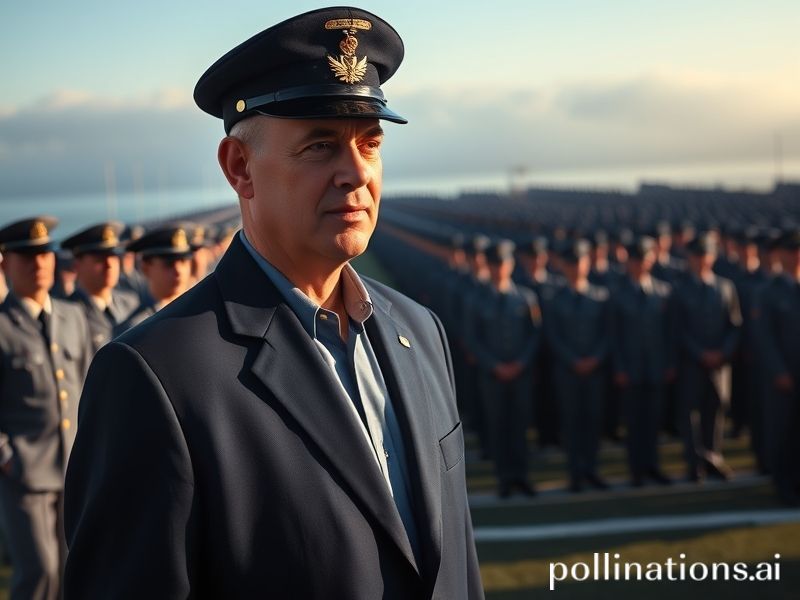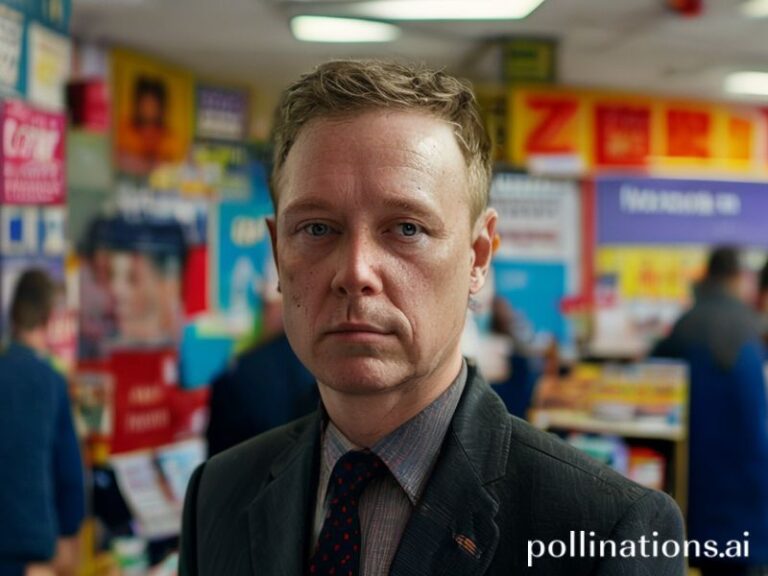From Hollywood to Hudson: How Tom Hanks’ West Point Cameo Became Global Soft-Power Theater
Tom Hanks, West Point, and the Global Theater of Soft Power
By Our Bureau Chief for Existential Irony, Geneva
It is a truth universally acknowledged that when a beloved American actor dons a cadet-grey uniform, the world leans in—partly out of curiosity, mostly out of the same rubber-necking instinct that makes us watch multi-car pile-ups on the Autobahn. Last week, Tom Hanks accepted an honorary Doctor of Letters from the United States Military Academy at West Point, delivering a commencement address whose viral reach rivaled the GDP of several small island nations. From Brisbane to Bishkek, the clip circulated with subtitles in 17 languages, proving once again that Hollywood soft power is the only U.S. export not subject to tariffs, embargoes, or moral scrutiny.
Of course, the event itself was quintessentially American: a bucolic parade ground framed by Hudson River fog, cannons that hadn’t seen action since the War of 1812, and an audience of freshly minted second lieutenants whose average age is lower than the average bottle of Bordeaux in a Parisian cellar. Yet the implications ricochet far beyond the Hudson Highlands. In an era when China’s TikTok dances and Russia’s Wagner Group memes compete for the planet’s dwindling attention span, Hanks’ cameo was a reminder that Uncle Sam still has a few A-listers in reserve—like keeping a stealth bomber on standby, but with better cheekbones.
Europe, ever the fretful theater critic, responded with the usual cocktail of envy and condescension. Le Monde called the speech “a masterclass in sentimental militarism”; Der Spiegel ran a side-by-side comparison of Hanks and Klaus Maria Brandauer, just to remind readers that Austria once made war films with actual moral ambiguity. Meanwhile, in Japan, NHK’s subtitled broadcast drew 8.7 million viewers, many of them no doubt wondering whether the U.S. Army’s new recruitment strategy involves a tasteful dash of Saving Private Ryan cosplay. (Answer: it does. The Army’s Instagram account has already posted a behind-the-scenes reel set to a slowed-down version of “Fortunate Son,” because nothing says counter-insurgency like ironic Creedence.)
Further south, Latin America’s leftist commentariat detected neo-colonial subtext in every handshake. “First they send Marines, now they send Forrest Gump,” quipped a Bolivian analyst on Telesur, apparently forgetting that Hanks’ most subversive act is convincing audiences the American dream is still morally solvent. Across the Atlantic, the BBC framed the story as “soft diplomacy,” which is British for “we wish we’d thought of it first.” Even the Vatican’s semi-official paper, L’Osservatore Romano, weighed in, praising Hanks’ “ethos of service” while delicately ignoring the fact that West Point’s motto, “Duty, Honor, Country,” has occasionally been translated into Farsi via drone strike.
The broader significance? In a world where trust in institutions is plummeting faster than crypto after a Musk tweet, the U.S. has decided to weaponize nostalgia. Hanks is the perfect delivery system: a cinematic everyman whose career spans Cold War thrillers, AIDS dramas, and desert-island soliloquies with volleyball. If the Pentagon can’t win hearts and minds with PowerPoint doctrine, perhaps it can do so with a guy who once taught us that life is like a box of chocolates—sweet, addictive, and 90 percent empty calories.
Meanwhile, China’s Central Academy of Drama has reportedly green-lit a rival project: “Comrade Zhang’s West Lake Speech,” starring a digitally de-aged Ge You in PLA dress blues. Rumor has it the script ends with a musical number about belt-and-road infrastructure. One can almost hear the Politburo arguing over whether to license the rights to “You’ll Never Walk Alone.”
And so the global soft-power arms race lumbers on, propelled by celebrity cameos, algorithmic sentiment, and the eternal human desire to be on the right side of the next viral moment. Somewhere in a dimly lit room in Brussels, a NATO strategist is no doubt drafting a memo titled “Operation Feel-Good,” budget line: one Oscar winner and a tear-jerking soundtrack. Because in 2024, deterrence isn’t just about missiles—it’s about making sure the world still cries at your trailer.
As the cadets tossed their caps skyward, a flock of Hudson Valley geese performed an unscripted flyover, proving yet again that nature has the best comedic timing. The hats descended like so many geopolitical assumptions—briefly aloft, then earthbound, slightly bent at the brim. And Tom Hanks, ever the gracious guest, saluted. Somewhere, a Russian bot farm logged the gesture as “probable psy-op,” while a French philosopher updated his lecture notes on the simulacrum of sincerity. The rest of us just clicked “share,” because that, dear reader, is how empires now rise and fall—one algorithmically boosted tear at a time.







